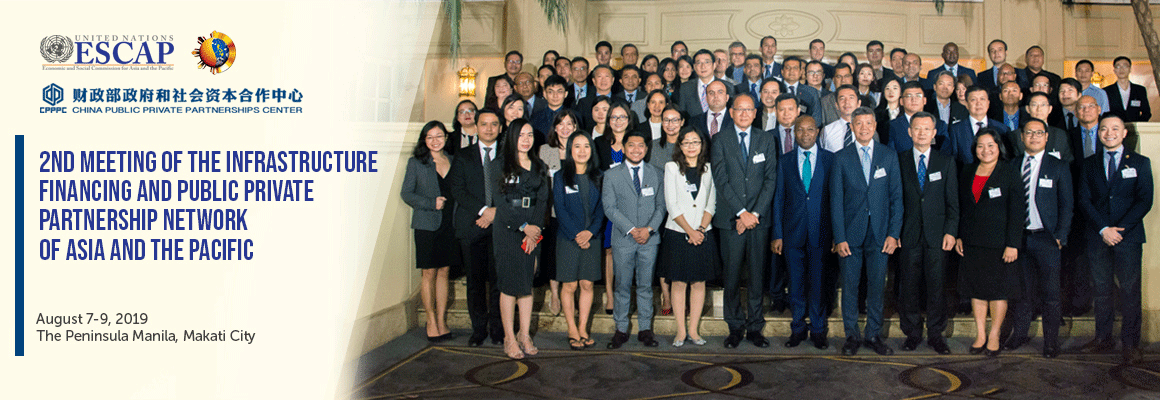
The Second Meeting of the Infrastructure Financing and Public-Private Partnership Network of Asia and the Pacific organized by the United Nations Economic and Social Commission for Asia and the Pacific (UNESCAP), in partnership with the Philippine PPP Center, brought together in Manila on August 7-9, 2019, a powerhouse of experts from both the financing and PPP industry. Infrastructure agencies, PPP Centers and units from 22 countries participated to exchange experiences, disseminate knowledge, and build consensus regarding good practices on infrastructure financing and PPPs.
Speaking before the international delegation, Mr. Hongjoo Hahm, Deputy Executive Secretary of UNESCAP, explained the significance of PPPs in addressing the 2030 Agenda for Sustainable Development. According to Mr. Hahm, the Sustainable Development Goals (SDGs) can only be achieved if countries attain infrastructure that is socially inclusive, environmentally friendly, and climate change resilient. He further mentioned that during the Addis Ababa Action Agenda, this global financing framework recognizes the value of PPPs in infrastructure financing, highlighting the need for countries to develop and build their capacities in doing PPPs.
The Philippine PPP Center chief, Undersecretary and Executive Director Ferdinand A. Pecson underscored the relevance and timeliness of the meeting especially during this time when infrastructure is one of the major priorities in the Asia and the Pacific.
“The meeting is very timely given the need by each country represented here to drive further development through investments in critical infrastructure,. This meeting is indeed an opportunity to learn from each other,” he said.
The 2nd Meeting highlighted the importance of knowledge exchange, networking, and the role of information technology in facilitating infrastructure development. Deputy Director General of the China PPP Center, Ms. Yang Jianmin, sees the immense power of vital information and building the network among member countries noting the experience in her country where an information platform and project databases have indispensable roles in delivering PPPs.
The fundamental value and advantages of PPPs in meeting each country’s infrastructure needs and in introducing efficiency and innovation were part of the major discussions in the meeting. The Director of East Asia Department of the Asian Development Bank (ADB), Ms. Xiaoqin Fan, emphasized that PPPs are designed with strong performance incentives that translate to efficiency and innovation. She added that PPPs can help governments meet their infrastructure needs by providing an alternative to public financing which faces budgetary constraints.
During the meeting, the PPP Center of the Philippines signed a Memorandum of Understanding (MOU) with the Kazakhstan PPP Center, forging a partnership that seeks to exchange experiences and knowledge on PPPs to accelerate the development, improve innovation, and advance achievements in the field of infrastructure development and delivery.
The international event concluded with a site visit of the participants to the two (2) major PPP projects in the Philippines, the MRT 7 and the Clark International Airport PPP Projects. The visit provided the participants a learning experience on how PPP projects are developed and implemented in the country.

